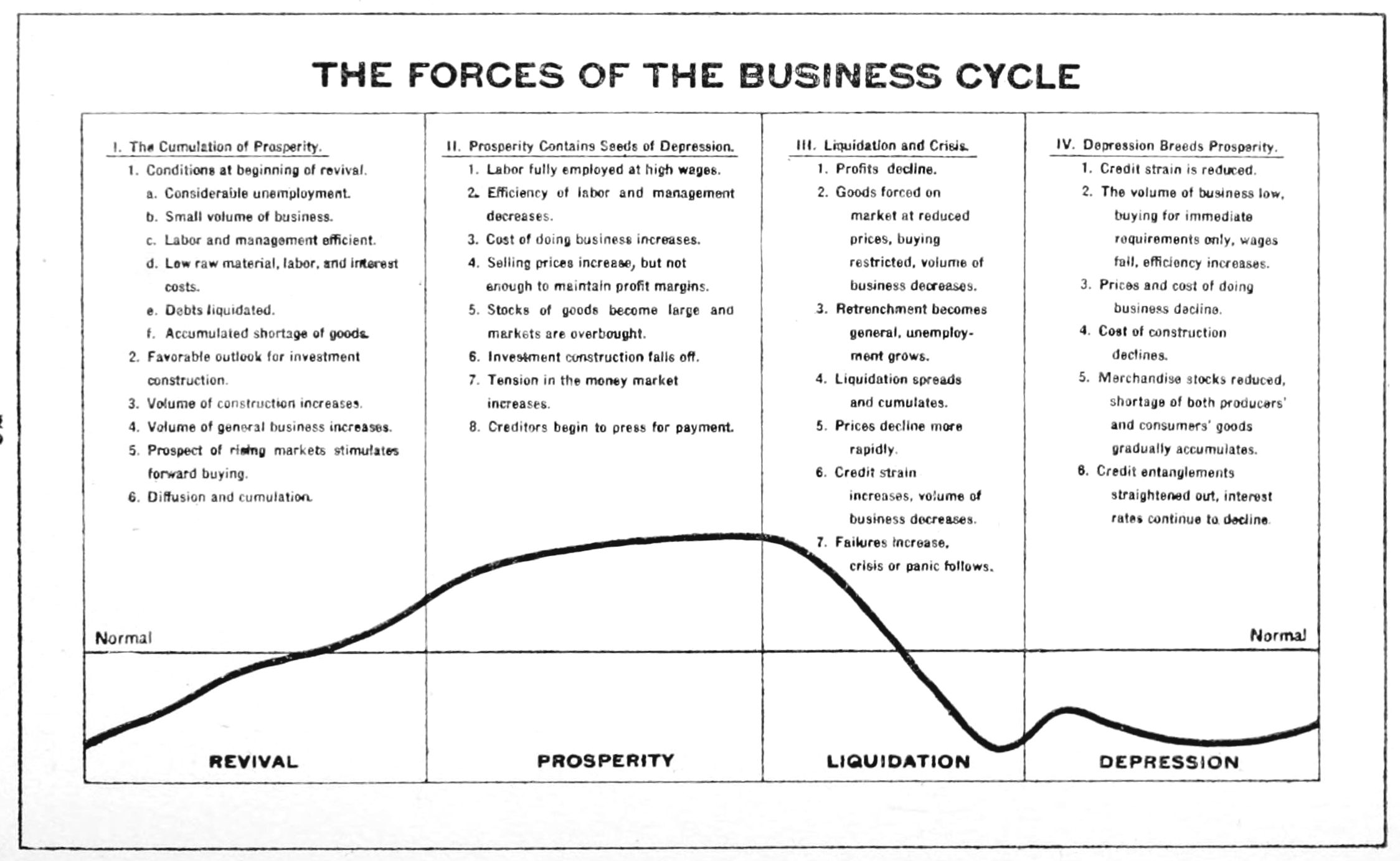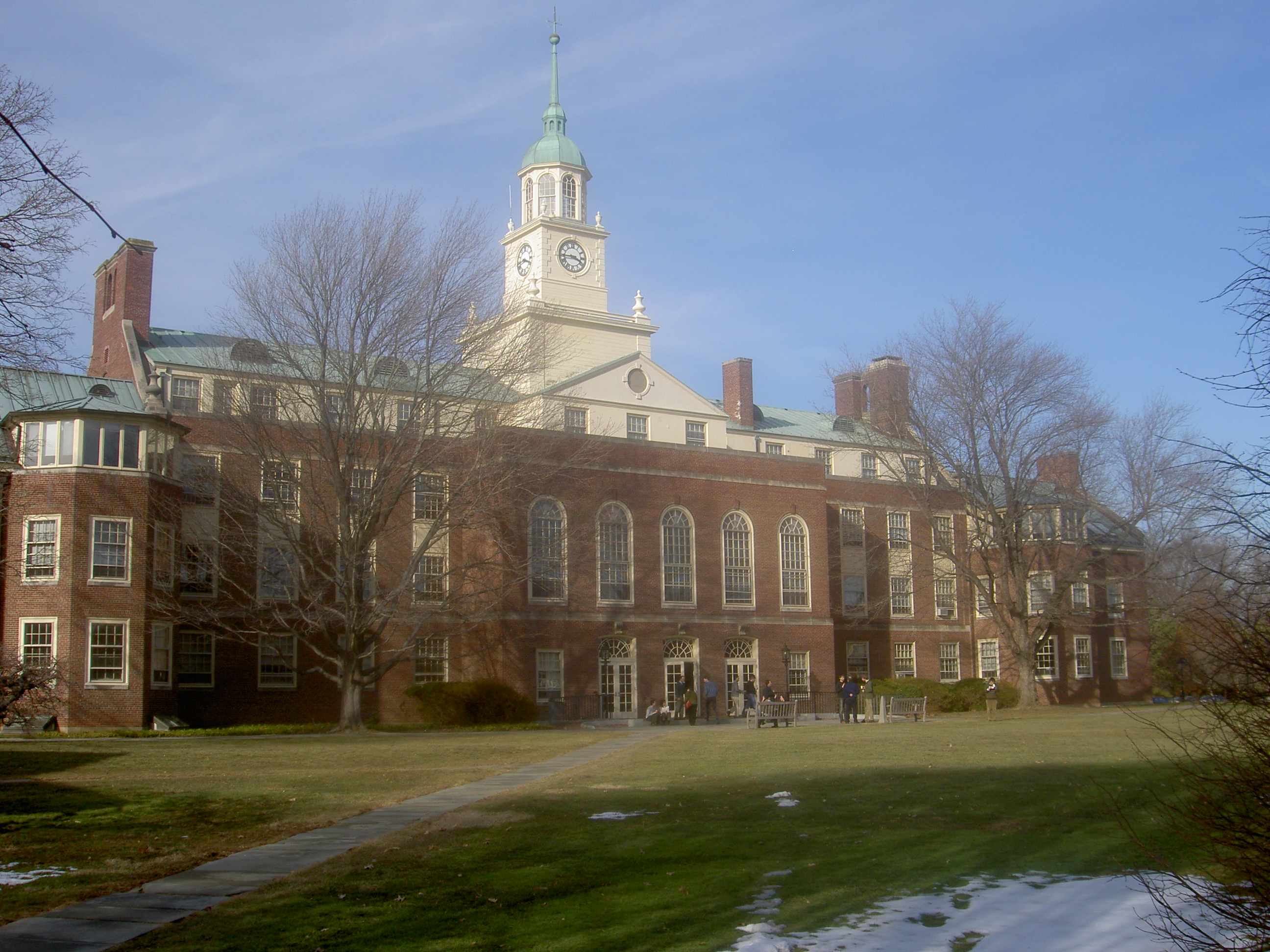|
Kuznets Swing
The Kuznets swing (or Kuznets cycle) is a claimed medium-range economic wave with a period of 15–25 years identified in 1930 by Simon Kuznets. Kuznets connected these waves with demographic processes, in particular with immigrant inflows/outflows and the changes in construction intensity that they caused, that is why he denoted them as "demographic" or "building" Business cycle, cycles/swings. Kuznets swings have been also interpreted as infrastructural investment cycles. Some modern economic commentators argue the Kuznets swing reflects an 18-year cycle in land values. Fred Harrison (author), Fred Harrison argues this cycle of boom and bust could be smoothed or avoided altogether by levying an annual tax on the value of land (land value tax). Kuznets' analysis was criticized by Howrey (1968). Howrey claimed that the apparent business cycle found by Kuznets was an artifact (error), artifact of the Filter (signal processing), filter Kuznets used. Howrey suggested that the same cy ... [...More Info...] [...Related Items...] OR: [Wikipedia] [Google] [Baidu] |
Simon Kuznets
Simon Smith Kuznets (; rus, Семён Абра́мович Кузне́ц, p=sʲɪˈmʲɵn ɐˈbraməvʲɪtɕ kʊzʲˈnʲɛts; April 30, 1901 – July 8, 1985) was an American economist and statistician who received the 1971 Nobel Memorial Prize in Economic Sciences "for his empirically founded interpretation of economic growth which has led to new and deepened insight into the economic and social structure and process of development." Kuznets made a decisive contribution to the transformation of economics into an empirical science and to the formation of quantitative economic history. Biography Early life Simon Kuznets was born in Pinsk in 1901, in the Russian Empire, or what is today Belarus, to Lithuanian-Jewish parents. He completed his schooling, first at the Rivne, then, Kharkiv Realschule of present-day Ukraine. In 1918, Kuznets entered the Kharkiv Institute of Commerce where he studied economic sciences, statistics, history and mathematics under the guidance of prof ... [...More Info...] [...Related Items...] OR: [Wikipedia] [Google] [Baidu] |
Business Cycle
Business cycles are intervals of Economic expansion, expansion followed by recession in economic activity. These changes have implications for the welfare of the broad population as well as for private institutions. Typically business cycles are measured by examining trends in a broad economic indicator such as Real Gross Domestic Production. Business cycle fluctuations are usually characterized by general upswings and downturns in a span of macroeconomic variables. The individual episodes of expansion/recession occur with changing duration and intensity over time. Typically their periodicity has a wide range from around 2 to 10 years (the technical phrase "stochastic cycle" is often used in statistics to describe this kind of process.) As in [Harvey, Trimbur, and van Dijk, 2007, ''Journal of Econometrics''], such flexible knowledge about the frequency of business cycles can actually be included in their mathematical study, using a Bayesian statistical paradigm. There are numer ... [...More Info...] [...Related Items...] OR: [Wikipedia] [Google] [Baidu] |
Investment
Investment is the dedication of money to purchase of an asset to attain an increase in value over a period of time. Investment requires a sacrifice of some present asset, such as time, money, or effort. In finance, the purpose of investing is to generate a return from the invested asset. The return may consist of a gain (profit) or a loss realized from the sale of a property or an investment, unrealized capital appreciation (or depreciation), or investment income such as dividends, interest, or rental income, or a combination of capital gain and income. The return may also include currency gains or losses due to changes in the foreign currency exchange rates. Investors generally expect higher returns from riskier investments. When a low-risk investment is made, the return is also generally low. Similarly, high risk comes with a chance of high losses. Investors, particularly novices, are often advised to diversify their portfolio. Diversification has the statistical effec ... [...More Info...] [...Related Items...] OR: [Wikipedia] [Google] [Baidu] |
Jay Wright Forrester
Jay Wright Forrester (July 14, 1918 – November 16, 2016) was a pioneering American computer engineer and systems scientist. He is credited with being one of the inventors of magnetic core memory, the predominant form of random-access computer memory during the most explosive years of digital computer development (between 1955 and 1975). It was part of a family of related technologies which bridged the gap between vacuum tubes and semiconductors by exploiting the magnetic properties of materials to perform switching and amplification. He is also believed to have created the first animation in the history of computer graphics, a "jumping ball" on an oscilloscope. Later, he was a professor at the MIT Sloan School of Management, where he introduced the Forrester effect describing fluctuations in supply chains, and is credited as the founder of system dynamics, which deals with the simulation of interactions between objects in dynamic systems and is most often applied to researc ... [...More Info...] [...Related Items...] OR: [Wikipedia] [Google] [Baidu] |
Andrey Korotayev
Andrey Vitalievich Korotayev (russian: link=yes, Андре́й Вита́льевич Корота́ев; born 17 February 1961) is a Russian anthropologist, economic historian, comparative political scientist, demographer and sociologist, with major contributions to world-systems theory, cross-cultural studies, Near Eastern history, Big History, and mathematical modelling of social and economic macrodynamics. He is currently the Head of the Laboratory for Monitoring of the Risks of Sociopolitical Destabilization at the HSE University in Moscow,http://www.hse.ru/org/hse/cfi/lab_mr/staff and a Senior Research Professor at the Center for Big History and System Forecasting of the Institute of Oriental Studies as well as in the Institute for African Studies of the Russian Academy of Sciences. In addition, he is a senior research professor of the International Laboratory on Political Demography and Social Macrodynamics (PDSM) of the Russian Presidential Academy of National ... [...More Info...] [...Related Items...] OR: [Wikipedia] [Google] [Baidu] |
Fred Harrison (author)
Fred Harrison (born 1944) is a British author, economic commentator and corporate policy advisor, notable for his stances on land reform and belief that an over reliance on land, property and mortgage weakens economic structures and makes companies vulnerable to economic collapse. Early life He was born in British Cyprus and educated in England, Germany and Singapore. After studying at Ruskin College, Oxford, he graduated from University College, Oxford, with a BA (Hons) and read for his MSc at University of London. Harrison lives in London with his wife, Rita. They have one daughter, Nina Harrison. Career in journalism Fred Harrison's first career was in newspaper journalism, working at papers such as the ''Wellington Journal'' and ''Shrewsbury News'', in Shropshire. After a stint in news agencies, he moved to ''The Camberley News'' as sub-editor, working there for a year before moving to ''The People'' newspaper, where he became chief reporter. Most of his stories involve ... [...More Info...] [...Related Items...] OR: [Wikipedia] [Google] [Baidu] |
Land Value Tax
A land value tax (LVT) is a levy on the value of land (economics), land without regard to buildings, personal property and other land improvement, improvements. It is also known as a location value tax, a point valuation tax, a site valuation tax, split rate tax, or a site-value rating. Land value taxes are generally favored by economists as they do not cause economic efficiency, economic inefficiency, and reduce economic inequality, inequality. A land value tax is a progressive tax, in that the tax burden falls on land owners, because land ownership is correlated with wealth and income. The land value tax has been referred to as "the perfect tax" and the economic efficiency of a land value tax has been accepted since the eighteenth century. Economists since Adam Smith and David Ricardo have advocated this tax because it does not hurt economic activity or discourage or subsidize development. LVT is associated with Henry George, whose ideology became known as Georgism. George ar ... [...More Info...] [...Related Items...] OR: [Wikipedia] [Google] [Baidu] |
Artifact (error)
In natural science and signal processing, an artifact or artefact is any error An error (from the Latin ''error'', meaning "wandering") is an action which is inaccurate or incorrect. In some usages, an error is synonymous with a mistake. The etymology derives from the Latin term 'errare', meaning 'to stray'. In statistics ... in the perception or representation of any information introduced by the involved equipment or technique(s). Computer science In ''computer science'', digital artifacts are anomalies introduced into digital signals as a result of digital signal processing. Microscopy In ''microscopy'', visual artifacts are sometimes introduced during the processing of samples into microscopic slide, slide form. Econometrics In ''econometrics'', which trades on computing relationships between related Variable (mathematics), variables, an artifact is a spurious finding, such as one based on either a faulty choice of variables or an over-extension of the computed relati ... [...More Info...] [...Related Items...] OR: [Wikipedia] [Google] [Baidu] |
Filter (signal Processing)
In signal processing, a filter is a device or process that removes some unwanted components or features from a signal. Filtering is a class of signal processing, the defining feature of filters being the complete or partial suppression of some aspect of the signal. Most often, this means removing some frequencies or frequency bands. However, filters do not exclusively act in the frequency domain; especially in the field of image processing many other targets for filtering exist. Correlations can be removed for certain frequency components and not for others without having to act in the frequency domain. Filters are widely used in electronics and telecommunication, in radio, television, audio recording, radar, control systems, music synthesis, image processing, and computer graphics. There are many different bases of classifying filters and these overlap in many different ways; there is no simple hierarchical classification. Filters may be: *non-linear or linear *time-variant or t ... [...More Info...] [...Related Items...] OR: [Wikipedia] [Google] [Baidu] |
White Noise
In signal processing, white noise is a random signal having equal intensity at different frequencies, giving it a constant power spectral density. The term is used, with this or similar meanings, in many scientific and technical disciplines, including physics, acoustical engineering, telecommunications, and statistical forecasting. White noise refers to a statistical model for signals and signal sources, rather than to any specific signal. White noise draws its name from white light, although light that appears white generally does not have a flat power spectral density over the visible band. In discrete time, white noise is a discrete signal whose samples are regarded as a sequence of serially uncorrelated random variables with zero mean and finite variance; a single realization of white noise is a random shock. Depending on the context, one may also require that the samples be independent and have identical probability distribution (in other words independent and iden ... [...More Info...] [...Related Items...] OR: [Wikipedia] [Google] [Baidu] |
World GDP
The world economy or global economy is the economy of all humans of the world, referring to the global economic system, which includes all economic activities which are conducted both within and between nations, including production, consumption, economic management, work in general, exchange of financial values and trade of goods and services. In some contexts, the two terms are distinct "international" or "global economy" being measured separately and distinguished from national economies, while the "world economy" is simply an aggregate of the separate countries' measurements. Beyond the minimum standard concerning value in production, use and exchange, the definitions, representations, models and valuations of the world economy vary widely. It is inseparable from the geography and ecology of planet Earth. It is common to limit questions of the world economy exclusively to human economic activity, and the world economy is typically judged in monetary terms, even in cases in ... [...More Info...] [...Related Items...] OR: [Wikipedia] [Google] [Baidu] |


.jpg)
